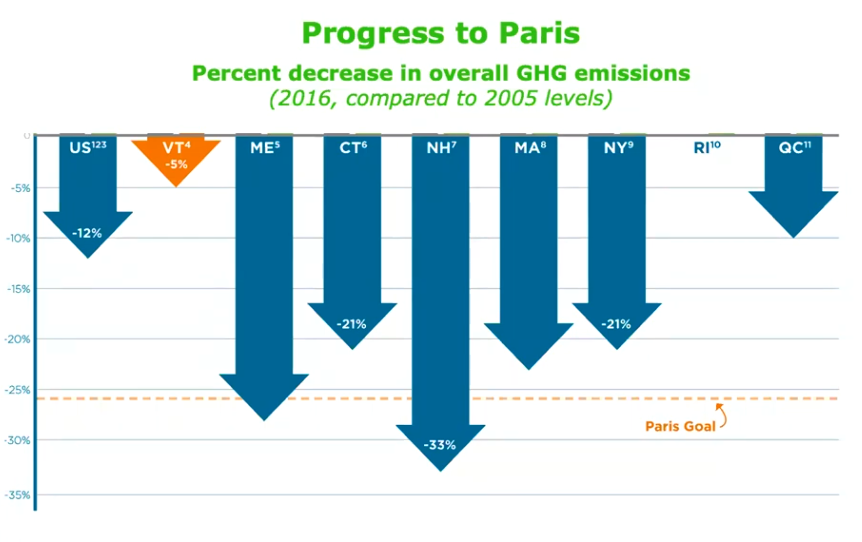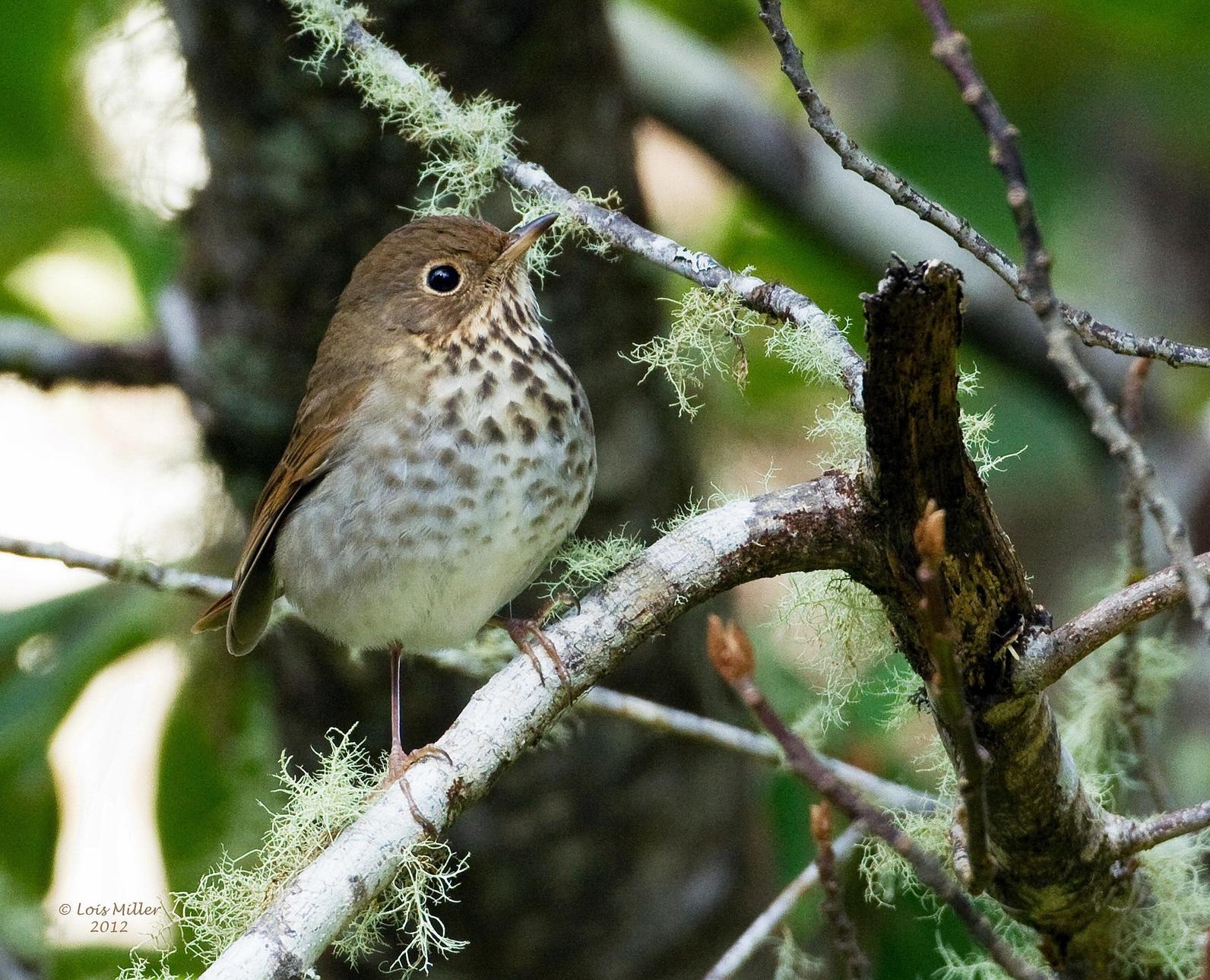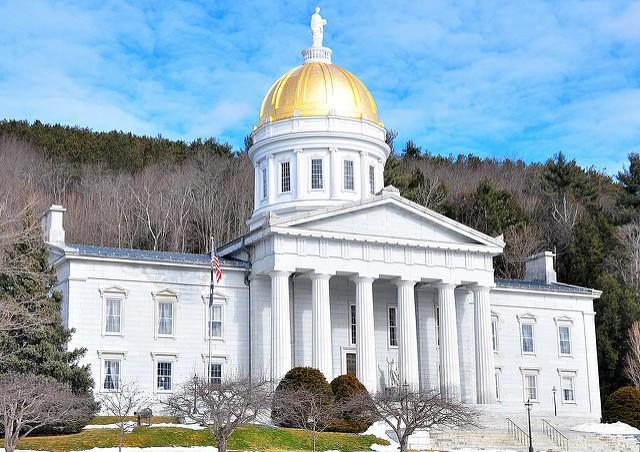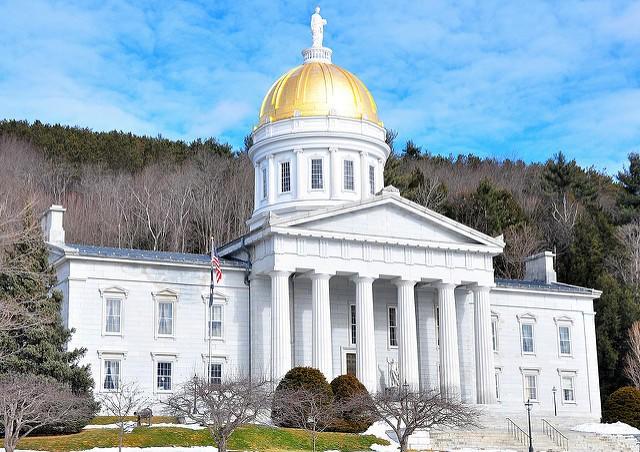Written by Lauren Saylor, Environmental Policy Intern and David Mears, Executive Director, Audubon Vermont
Birds and people are facing the same climate crisis, so it is good news for all of us that the Vermont General Assembly is considering a bill that will require state agencies to take meaningful actions to curb our greenhouse gas emissions. These actions will not only address Vermont’s contributions to carbon pollution, but also provide opportunities to invest in our state’s economy, build community resilience, and protect wildlife habitat. The Vermont House passed the Global Warming Solutions Act in late February this year. The Senate Committee on Natural Resources and Energy voted to advance the bill to the full Senate where it will be voted on this week.
At a moment when Vermonters have proven that we can and will respond quickly and effectively to the COVID-19 pandemic, we can take similar steps to address another global crisis. The COVID-19 pandemic has severely exacerbated disparities and brought unprecedented public health, social, racial, and economic challenges. Vermonters with lower incomes and those hit hardest by the costs of climate change will have better access to clean energy, clean transportation, and lower heating and housing costs. The Global Warming Solutions Act of 2020 is an equitable solution to not just many, but to all. The GWSA will require greenhouse gas emission reductions that mirror the goals of the Paris Agreement while building climate-resilient communities. Passage of the GWSA will encourage investment in a local, clean energy economy and promote conservation of natural resources. Importantly, at a time when the nation is reckoning with images starkly presenting the systemic racial and economic inequality in our society, the GWSA requires Vermont to consider issues of equity and justice in the development of a climate strategy.
The Vermont legislature and its leaders are right to press forward with this legislation. As noted in recent studies, birds are telling us it is time to take action on climate. It is not too late to reverse the troubling observed declines in bird populations in the recent report by the Cornell Laboratory of Ornithology, or predicted in Audubon’s Survival by Degrees report. In Survival by Degrees, Audubon’s scientists explain that we can help over three quarters of North America’s vulnerable species by taking strong actions to reduce carbon emissions now. Here in Vermont, we face the loss of many of our most cherished and well-known birds including the White-Throated Sparrow, the Common Loon, and even our state bird, the Hermit Thrush. In the words of Audubon Vermont Director David Mears, “The message from our birds is clear: We must act now.”
Other Northeastern states (New York, Maine, Connecticut, and Massachusetts) have made significant strides in reducing their greenhouse gas emissions through similar laws, while Vermont has lagged behind. (see Figure 1 below and the Energy Action Network's 2019 Annual Progress Report). Passage of the GWSA will put Vermont in step with these other states through adopting a planning and implementation framework and requiring accountability of the state agencies tasked with doing this critical work.

A central mechanism for driving progress is the establishment of the Vermont Climate Council. This council will have four subcommittees focusing on (1) resilience and adaptation, (2) mitigation (reduction of greenhouse gas emissions), (3) equity and justice, and (4) the role of our farms and forests. The council will be responsible for identifying, analyzing, and evaluating strategies and programs to ensure that Vermont’s greenhouse gas emissions will be at least 26% below the 2005 level by 2025, at least 40% below the 1990 level by 2030, and at least 80% below the 1990 level by 2050. The council will adopt the Vermont Climate Action Plan by December 2021 and update it every four years.
At a moment when Vermont’s economy has taken a hit on the chin as a result of the COVID-19 crisis, it is important to note that Vermont must continue to plan for our economic future. As noted by Vermont Treasurer Beth Pearce, “[w]e have the choice to act or not to act. The consequences of not acting are impacts on our economy, our revenue base, our property taxes, increased costs, and tourism dollars.”
On this note, one of the critical opportunities for birds and communities in the GWSA is its inclusion of strategies relating to conserving our working farms and forests, and natural climate solutions like restoring floodplains and wetlands. According to the Gund Institute for Ecological Economics at UVM, the “economic return on conservation investment is significant,” and a key step to protecting Vermonters’ “strong sense of place and close connection to the land.” A report from the Trust for Public Lands reinforces this conclusion, finding that “every $1 invested in land conservation by the state returns $9 in economic value in natural goods and services, such as water quality protection, flood mitigation, and food production, to the Vermont economy.”
Vermonters value our landscape of walkable villages, towns, and cities, surrounded by farms, green mountains, and silver waters and, for this reason, have long sought to preserve its rural character. This character contributes to Vermont’s green image as well as our economy. Investment in conservation, as promoted by the GWSA, makes good ecological and economic sense. The Global Warming Solutions Act would align our green image with our actions, and lead to critical investments in our state’s long-term prosperity.
Vermont’s proposed law, H.688, is necessary to protect our birds and our communities. Call or write to members of the Vermont Senate and urge them to vote YES on H.688.
For a complete list of Vermont House Senators, click here: https://legislature.vermont.gov/people/all/2020/Senate
For an inspirational how-to article about raising your voice to the next level, read Audubon Magazine’s “How to Lobby Your Legislators: Remember: Your state representatives work for you.”










